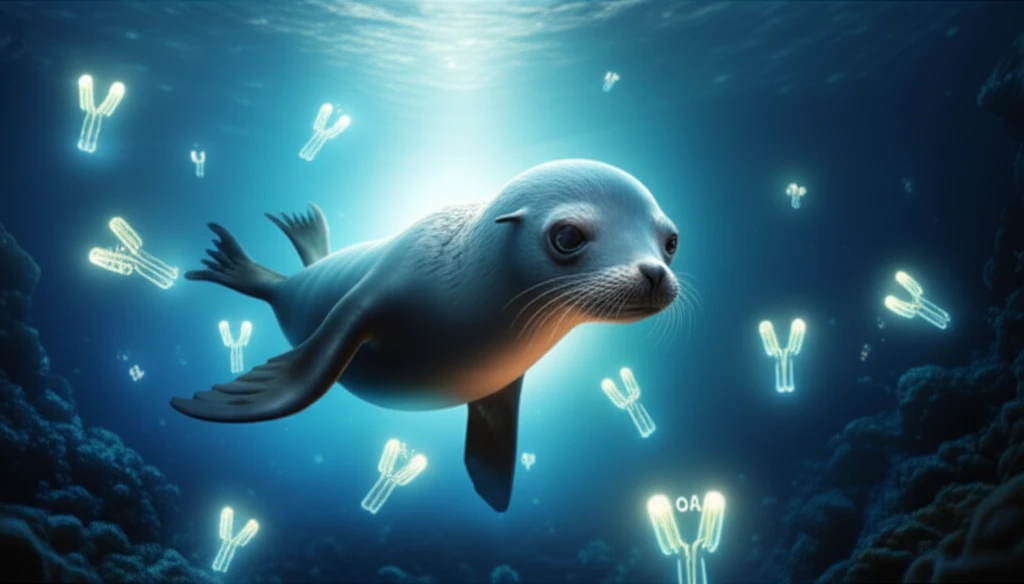
Decoding Baby Sea Lions: How Their Immunity Develops and What It Means for Their Survival
"A fascinating look into the evolving immune systems of California sea lion pups, revealing the critical factors that determine their health and resilience in a challenging environment."
Like all newborns, baby sea lions face a world teeming with potential threats. Their immune systems, still under construction, rely heavily on antibodies—those tiny warriors that provide long-lasting protection. These antibodies are passed down from mom, offering a temporary shield against illness. But as these maternal defenses wane, the pups' own bodies must learn to create their own.
Scientists have long been fascinated by how marine mammals develop immunity. Much of the focus has been on antibodies circulating in the blood, but a new study dives deeper, examining the intricate workings of immunity in the mucosal membranes—the protective linings of the nose, mouth, and gut—of California sea lion (CSL) pups. This research sheds light on how these young animals develop localized defenses against a barrage of environmental challenges.
Think of the mucosal membranes as the first line of defense, constantly exposed to the outside world. Unlike the blood, where immune responses are more generalized, mucosal immunity is tailored to specific threats encountered in each location. This study explores how age, body condition, and even sex play a role in shaping this localized immunity in CSL pups, offering valuable insights into their early development and survival.
The ABCs of Sea Lion Immunity: IgG, IgM, and IgA

Mammals wield a diverse arsenal of antibodies, each with a unique mission. Three key players in sea lion immunity are IgG, IgM, and IgA:
- IgG: The workhorse of the immune system, providing long-term protection against a wide range of pathogens. It's transferred from mother to pup, offering initial defense.
- IgM: The rapid responder, quickly mobilized to fight off new infections. Its presence indicates an active immune response.
- IgA: The guardian of mucosal surfaces, preventing pathogens from attaching and causing harm. It's crucial for protecting the respiratory and digestive tracts.
Protecting the Future: Conservation and Sea Lion Immunity
Understanding how sea lion pups develop immunity is crucial for their conservation. By identifying factors that influence their ability to fight off disease, we can develop strategies to protect these vulnerable animals and ensure their survival in a changing world. From monitoring body condition to mitigating environmental stressors, every effort counts in safeguarding the future of California sea lions.
